All to play for – Vuelta a Espana GC analysis
Simon Yates in control as Movistar headaches deepen and Kruijswijk enters the fray
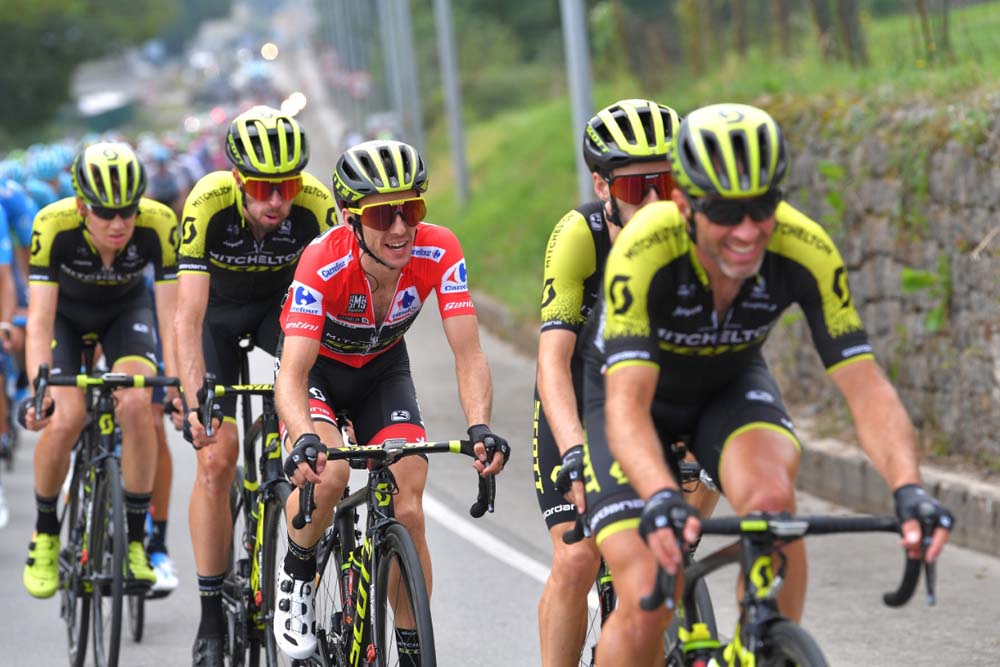
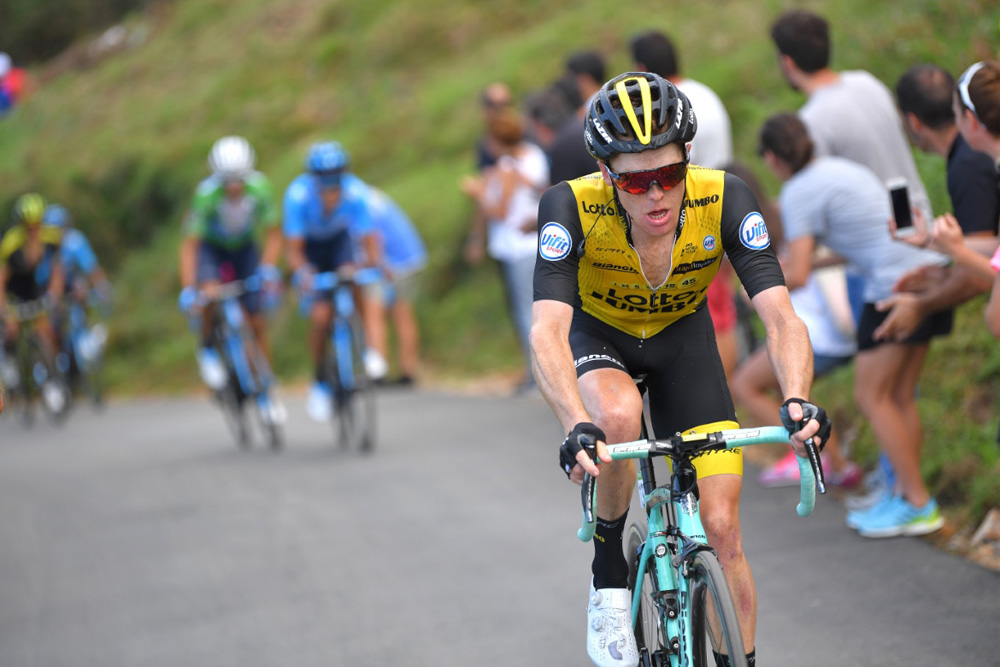
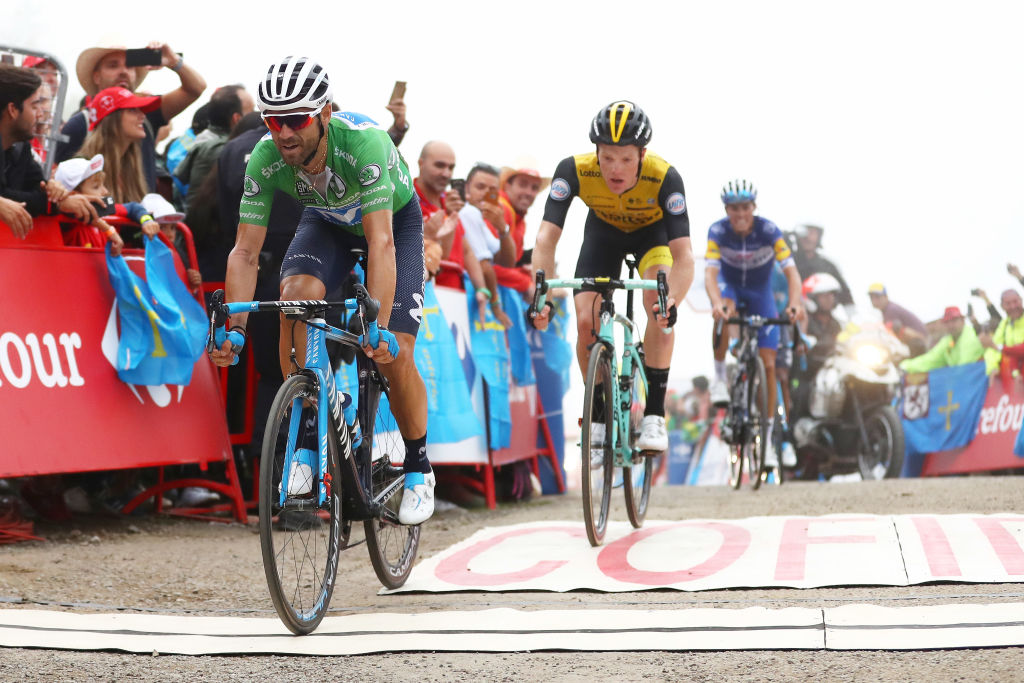
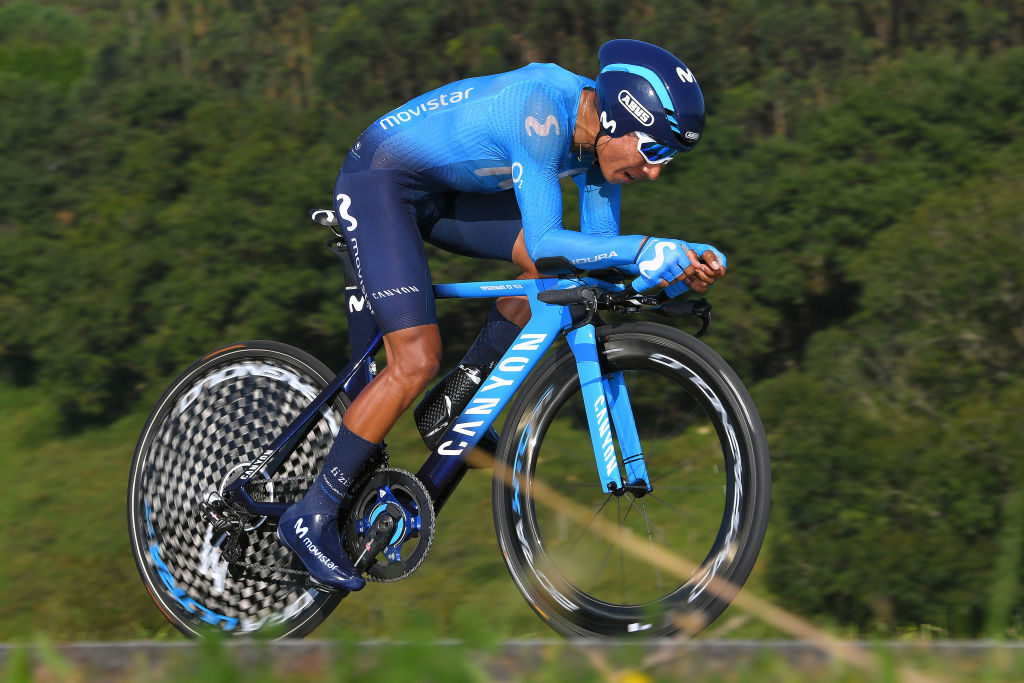
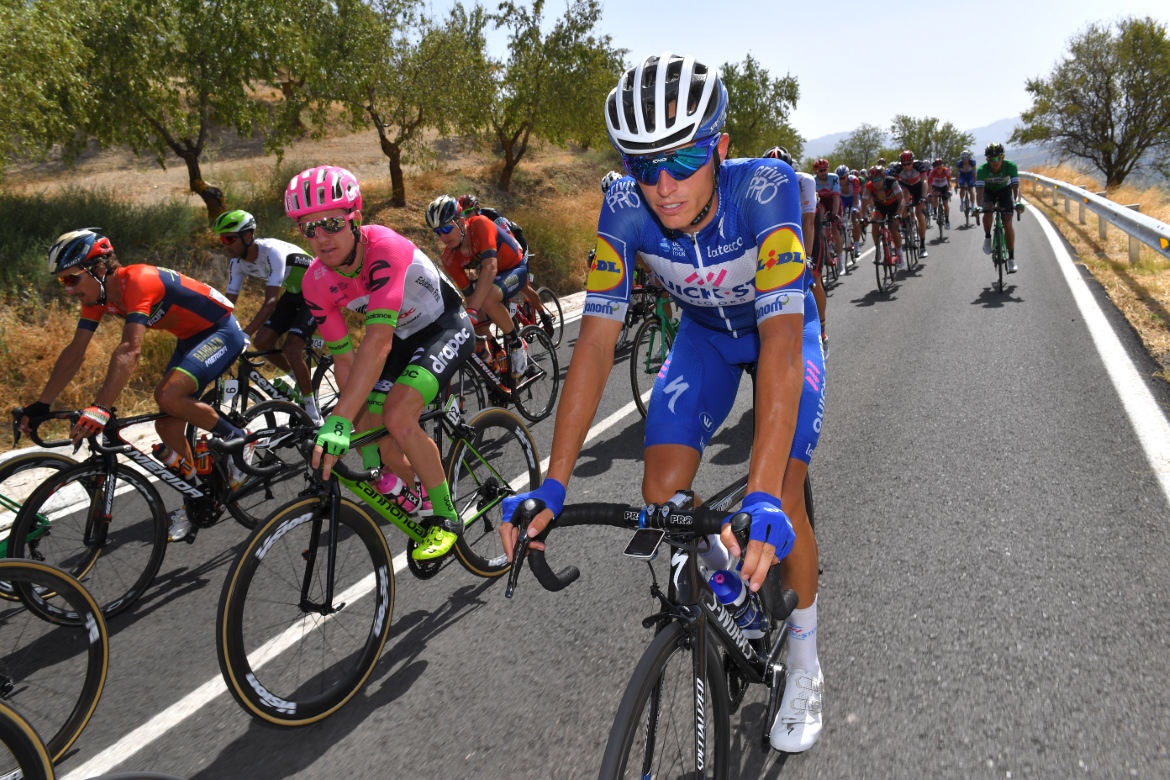
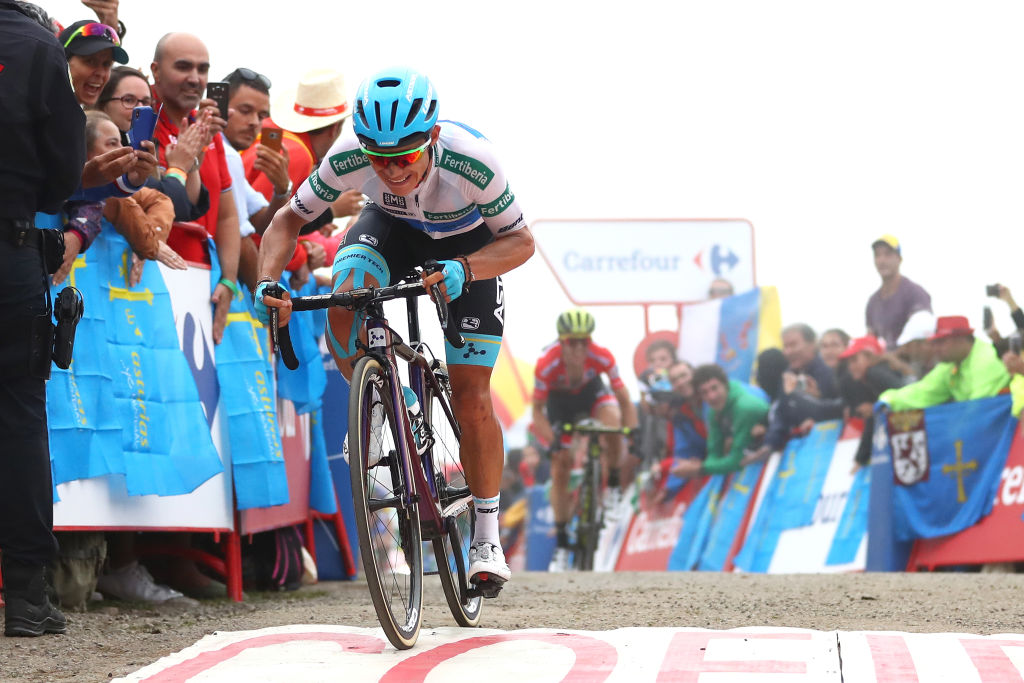
It's hard to escape a sense of déja-vu in the final week of this Vuelta a España. Mitchelton-Scott's Simon Yates is the convincing leader of a Grand Tour going into the final five stages, while Movistar have two cards without a clear indication they know how to play them. How it unfolds from here, though, is anyone's guess.
Tuesday's stage 16 time trial, in the absence of specialists such as Chris Froome and Tom Dumoulin, didn't produce huge swings in the general classification but, nevertheless, in the space of 32 undulating kilometres in the Cantabrian hinterland, we saw more significant gaps than in all the previous mountain stages combined.
It has been that sort of Vuelta so far – a cagey affair – but there's plenty of room for it to burst into life between here and Madrid on Sunday.
The headline on Tuesday was that Yates not only limited his losses but actually gained time on his direct rivals, putting seven seconds into Movistar's Alejandro Valverde, 42 into the Spaniard's teammate Nairo Quintana, and 52 into Astana's Miguel Angel Lopez.
Yates now leads the race by 33 seconds from Valverde and, given he has already won a mountain stage and conceded precious little ground to any of his adversaries, is the favourite in the eyes of most.
The big question surrounding Yates is whether he can hold on, with three crucial mountain stages to come in the final five days. His dramatic, late Giro d'Italia collapse continues to haunt him, and there will be no definitive answers until the very top of the final climb up the Coll de la Gallina on Saturday afternoon.
That said, Yates and his team, who were delighted with how things unfolded on Tuesday, are quietly confident that lightning won't strike twice.
Get The Leadout Newsletter
The latest race content, interviews, features, reviews and expert buying guides, direct to your inbox!
"Simon is in a very different place than he was at the Giro, that's for sure," Mitchelton-Scott directeur sportif Matt White told Cyclingnews.
"At this point in the Giro, we'd gone after a lot. We'd won four stages and had a week in the leader's jersey already. And we had a different tactic. We had Dumoulin and Froome to beat, who are better in the time trials, so we needed to get bonuses and take time whenever we could.
"It's a different tactic here because we have different rivals. Simon has saved more energy this far into the race compared to the Giro. He's in a different place than he was at the Giro, that's for sure.”
Movistar maintain double-pronged attack
If Yates can right his wrongs from the Giro, can Movistar do the same from Grand Tours past? Leadership debates that teeter on the edge of controversy have followed the team like a bad smell in recent years, and the time trial did little to clear up their existing dilemma.
While Valverde was faster than Quintana by 35 seconds and therefore increased his lead over the Colombian to 42 seconds, it was a smaller gap than many expected. What's more, predictions that Valverde might close the 26-second gap to Yates and take the leader's jersey proved misguided as the pendulum actually swung the other way and Valverde moved seven seconds further adrift of the overall lead.
There was a suspicion on Tuesday that Movistar were not disappointed simply because Valverde hadn't performed as well as expected, but because had he taken the red jersey, the leadership complexion would have been vastly clearer. The jersey carries its own significance and they could have set out into the mountains of the Basque Country with the mission of defending it, whereas now no one is any closer to knowing how the team might approach the final stages.
"With that gap, the Movistar leadership is not defined," Alberto Contador said on Spanish television. "If I was the DS, I would have to leave it open."
Movistar have been here before. Not only did the leadership debate dominate their Tour de France – with Mikel Landa as a third party – but Quintana and Valverde both had to try and dovetail their own personal ambitions at the 2015 Tour de France. In the end, both made it onto the podium but Froome walked off with the yellow jersey.
The team was widely criticised for a perceived conservatism – a charge that has often been levelled at Quintana, even when riding as sole leader. Team manager Eusebio Unzué certainly didn't win many fans when he shrugged off his disappointment and emphasised the victory in the teams classification, as he did again at this year's Tour.
Movistar, Valverde, and Quintana have all won the Vuelta – and its teams classification – and so common sense would dictate they have much more to gain than they do to lose. A more creative and audacious game-plan would seem to be required, but how much are they willing to risk?
Valverde was disappointing in the time trial, while Quintana was disappointing at Lagos de Covadonga, but neither have shown any real sign that they are incapable of winning this Vuelta. Both have insisted they would work for the other, but will they be willing, when push comes to shove, to sacrifice their own chances in taking the race to Yates with both barrels?
It's the big question mark of the final week of this Vuelta.
Kruijswijk and Mas enter the fray
Prior to the time trial, the Vuelta looked like something of a four-horse race, with Yates, Valverde, Quintana and Lopez all within 45 seconds of each other. However, while everyone was focused on those four, two riders came from somewhere near left-field to blow open the battle for the podium.
LottoNL-Jumbo's Steven Kruijswijk, fifth at 1:29 at the start of the day, produced a stunning ride to finish fourth on the stage and leapfrog Quintana and Lopez into third at 52 seconds, while Enric Mas (Quick-Step Floors), sixth at 1:55 before the time trial, finished sixth on the stage to move above Lopez into fifth, 1:30 down on race leader Yates.
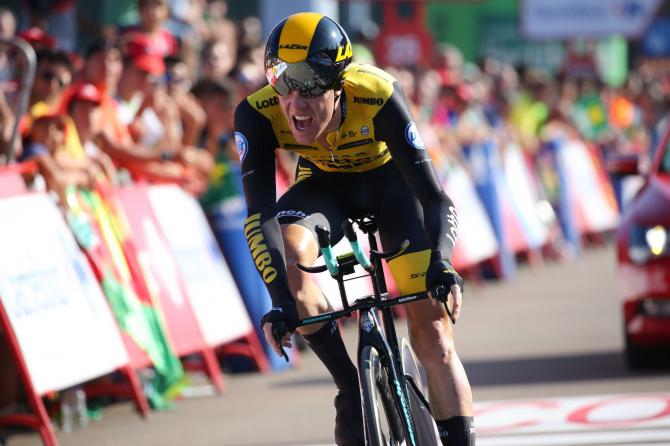
Steven Kruijswijk (LottoNL-Jumbo) finishes stage 16 (Bettini Photo)
With Lopez still just 1:34 behind Yates, and a gap of a further 1:19 to Thibaut Pinot (Groupama-FDJ) in seventh, it now looks very much like a six-horse race.
While it's difficult to see 23-year-old Mas troubling the podium – as he insists is his ambition – Kruijswijk, who surprised himself and his own team staff with his performance, is a dark horse in the eyes of many.
After finishing eighth at the 2011 Giro d'Italia, and seventh there in 2015, he came close to winning the Giro in 2016, but was famously thwarted by a catastrophic crash on the Colle dell'Agnello, which saw him fade to fourth.
In the past couple of years Kruijswijk has consistently shown real strength in the final week of Grand Tours. At last year's Vuelta, he secured ninth with a strong ride on the Angliru, while earlier this year at the Tour de France he finished an impressive fifth.
LottoNL-Jumbo won plaudits aplenty for their aggressive and inventive riding at that Tour, where Kruijswijk was joined in the top five by Slovenian teammate Primoz Roglic, and the Dutchman showed no conservatism in embarking an 80-kilometre solo effort on the Alpe d'Huez stage.
It was interesting to note that, while Kruijswijk placed fourth in the time trial at the Vuelta on Tuesday, six of his seven teammates placed in the bottom 15 places, which some have taken as a sign their riders were trying to leave themselves as fresh as possible for a big workload in the coming days. Coincidence or not, it would be no surprise to see LottoNL-Jumbo taking the Vuelta by the horns in the coming days.
Talking tactics
So, what happens next?
Wednesday will feature a 157km stage in the Basque Country where, despite the five categorised climbs before it, the summit finish on the Balcón de Bizkaia – with concrete roads and fearsome gradients – will be the centre of attention.
A flat stage to Lleida follows on Thursday – although there are already whispers of crosswinds – ahead of the weekend double-header in Andorra, where a largely flat parcours precedes a big summit finish on the Friday and all hell breaks loose on the Saturday with a shark-teeth profile that packs four major ascents into 97 kilometres.
However, despite the preponderance of mountains in the final week, there isn't, according to Mitchelton-Scott DS White, as much room for tactical manoeuvre as you might think.
"Guys like Quintana and Lopez will have to go early now, but with the climbs we have ahead, Saturday is the only day they can do that," White said.
"Tomorrow [Wednesday], normally all the good guys would come to bottom of the climb together, and there's not much in the way of tactics involved on a climb that's 20-plus per cent. Friday is just one climb on the day – a long climb, but it will be a battle of the best guys on those 17 kilometres.
"But Saturday is the day," said White. "Probably by the top of the first climb, there'll only be, like, 25 guys left anyway."
As Valverde said after the time trial, no one knows what comes next, but that's the beauty of Grand Tour racing.
"The Giro is the Giro, the Tour is the Tour, and the Vuelta is the Vuelta," said the Spaniard, tripling the customary platitude. "Anything can happen."
Patrick is a freelance sports writer and editor. He’s an NCTJ-accredited journalist with a bachelor’s degree in modern languages (French and Spanish). Patrick worked full-time at Cyclingnews for eight years between 2015 and 2023, latterly as Deputy Editor.
